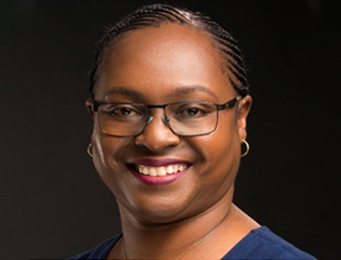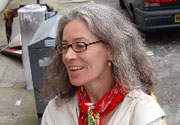| |
|
|

Interviews ::
 |
Amy Wu, an award-winning writer for the women’s Ag and Agtech movement |
 |
Ms. Irene Karani, Children’s Investment Fund Foundations’ Africa Climate Director |
 |
Natalia Schäfer (Schaefer), Leading and Globally Renowned Artist |
|
Read All Interviews |
News / Updates/ Analysis ::
COP 27- some hopes midst of chaos
Climate Change is Happening Now- Time to Take Action!
|


|
|
|

|
Nicola Bullard works with Focus on the Global South which is engaged with the Asian climate justice movement. Focus was established in Bangkok in 1995 and is affiliated with the Chulalongkorn University Social Research Institute. Focus on Global South was one of the major actors on Climate Justice Conference held in Bangkok 12-14 July 2008 where more than 170 activists from across Asia participated the event. Below is the summary of the detailed interview with Nicola.
|
- Global South has been raising issues of Climate Justice? What it is all about -can you put it in a very simple way?
Climate justice is based on the understanding that, while climate change requires global action, the historical responsibility for the vast majority of greenhouse gas emissions over the past 250 years lies with the industrialized countries of the North. Cheap energy – in the form of oil, coal and gas – has been the engine of their rapid industrialization and economic growth.
Communities in the Global South as well as low-income communities in the industrialized North have borne the toxic burden of this fossil fuel extraction, transportation and production. Now these communities are facing the worst impacts of climate change – from food shortages to the inundation of whole island nations.
Any response to climate change must redress these injustices and contribute to building a more just and sustainable future.
- What are your major demands?
- Leaving fossil fuels in the ground and investing instead in appropriate energy-efficiency and safe, clean and community-led renewable energy
- Radically reducing wasteful consumption, first and foremost in the North, but also by Southern elites
- Huge financial transfers from North to South, based on the repayment of climate debts and subject to democratic control. The costs of adaptation and mitigation should be paid for by redirecting military budgets, innovative taxes and debt cancellation.
- Rights-based resource conservation that enforces Indigenous land rights and promotes peoples' sovereignty over energy, forests, land and water.
- Sustainable family farming and fishing, and peoples' food sovereignty.
- Who are the major victims of climate injustice in Asia?
The people most impacted by climate events in Asia are by and large the poor: farmers effected by drought or displaced by agro-fuels, fishers who are impacted by species loss, coastal degradation and rising sea levels, urban poor who usually live in the areas most vulnerable to floods, landslips and other climate-related disasters.
- Do you think neoliberalism and capitalism are responsible for global climate injustice?
Yes.
- What are the political positions of Global South on the issues of climate justice?
An agreement containing the following would be a step in the right direction:
- Recognition of, and measures to repay, climate and ecological debt
- Recognition of and measures to ensure that all climate agreements are subordinated to international human rights and environmental agreements, in particular those related to indigenous peoples and women
- Global moratorium on fossil fuel exploration
- Recognition of and financing for a “just transition” for workers
- New, adequate, unconditioned public finance in the form of grants for adaptation and mitigation, under the control of the “creditors”, including communities, in the framework of the UNFCCC
- Creation of a “global commons” for sharing climate friendly technologies and innovation (and suspending TRIPS)
- Minimum of 49% emissions reduction by Annex 1 countries by 2017 with no offsets
- No role for the World Bank in climate financing
- How do you see the future of social movements and their roles in issues like Climate Change?
Social movements are central to any social transformation: they are the main victims of injustice, they are the main protagonists of alternatives and they should be the main beneficiaries of change
- How does Global South see the role of communities in response to climate change at a time when it has been affecting their lives and on the other climate talks are more technical and intellectual?
Effected communities should be centrally involved in shaping policies, controlling resources and making decisions.
- How do you see the importance of connecting with national and regional forums to galvanize the people’s power in amplifying public voices?
National and regional processes and movements will be the engines of change, not the UNFCCC.
Give your feedback: secretariat@earthconcernasia.com
Note: Opinions expressed in interview sections and individual write ups are of interviewee/ authors; earth concern facilitates to bring ideas and perspectives.
|
|

